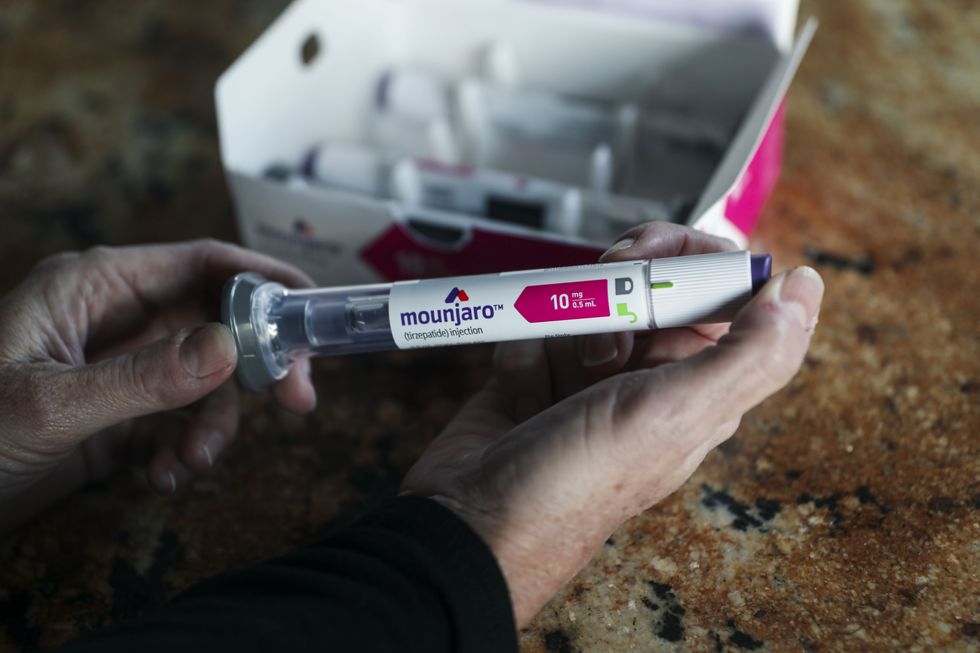Sixteen people in hospital with side effects after weight-loss injections
At least 16 people in Scottish hospitals have been treated for dangerous side-effects of the drug tirzepatide, known by its brand name of Mounjaro.
This raises serious concerns following a similar incident where two low-dose injections of the drug caused the death of nurse Susan McGowan.
Mounjaro is one of a group of weight-loss drugs known as GLP-1 receptor agonists, which work by making the patient feel fuller for longer.
There have already been calls to tighten control over the accessibility of weight-loss drugs such as Mounjaro over the internet.

Mounjaro and other weight-loss drugs are developed to treat type 2 diabetes, however they can be prescribed without having a face-to-face appointment.
Private prescriptions online have meant that these drugs can now be accessed easily.
However, this means A&E doctors are facing a “huge increase” UK-wide in patients being sent to hospital with complications caused by the drugs, according to The Society for Acute Medicine.
Buyers only need to fill in an online form to purchase the drugs at a rate of £200 for a one-month course.
Despite reviewing these forms, doctors have no way of checking how truthful the information is before approving the prescriptions.
Vicky Price, president-elect of the Society for Acute Medicine, said: “A doctor checks the forms but at no point is anyone seeing patients face-to-face.
“We’ve seen many examples where patients have lied on the form and been given the drugs when they shouldn’t have them. There is no safety check apart from the person’s own probity.”
LATEST DEVELOPMENTS:
- Councillors ‘fail to listen’ after no poppies placed on lampposts in Derbyshire suburb
- Remembrance Sunday ‘hijacked’ by White Poppy campaigners calling for occasion to be ‘decolonised’
- Aldi partners with brewery to create sustainable beverages that tackle food waste
Price added: “I have seen a huge increase in the number of patients coming into hospital with side effects from these medications. Thankfully most are relatively minor, such as diarrhoea and vomiting, but serious complications are possible.”
McGowan, 58, is thought to be the first person in the UK whose death is officially linked to the drug. She had the injections over a course of two weeks before her death on September 4.
Her death certificate listed septic shock, pancreatitis and multiple organ failure as the immediate cause, but the “use of prescribed tirzepatide” is recorded as a contributing factor.
Other weight-loss injections have also been linked to hospital treatments.
The North Lanarkshire health board confirmed that Semaglutide, the key component of branded drugs Ozempic and Wegovy, is one of the drugs that has been associated with 12 complaints between April last year and August this year.
Similarly, NHS Glasgow and Clyde said up to four patients had been admitted with complications from the weight-loss jabs in the same period.
Sandesh Gulhane, the Scottish Conservative health spokesman, said: “These concerning figures emphasise the risk these wonder drugs can pose and why we desperately need better regulations surrounding them.

“Susan McGowan’s tragic death should serve as a warning to those considering these medications that sometimes they can have devastating consequences.”
Weight-loss drugs have risen in popularity for aesthetic purposes rather than as a medical step in improving long-term health.
This is largely through celebrity influence – Oprah Winfrey, for example, has discussed using these drugs as a miracle weight-loss method in a new TV special.
Although the drugs were approved in the UK for weight-loss aid last year, they were only available on the NHS for a very small number of patients.
The Medicines and Healthcare products Regulatory Agency (MHRA) run a yellow card scheme, where healthcare professionals and the general public can report any suspected side effects of drugs.
Within a span of only four months from January to May this year, there were 208 reports about tirzepatide on the yellow card scheme.
This included 31 serious reactions and one suspected death of a man in his 60s.

